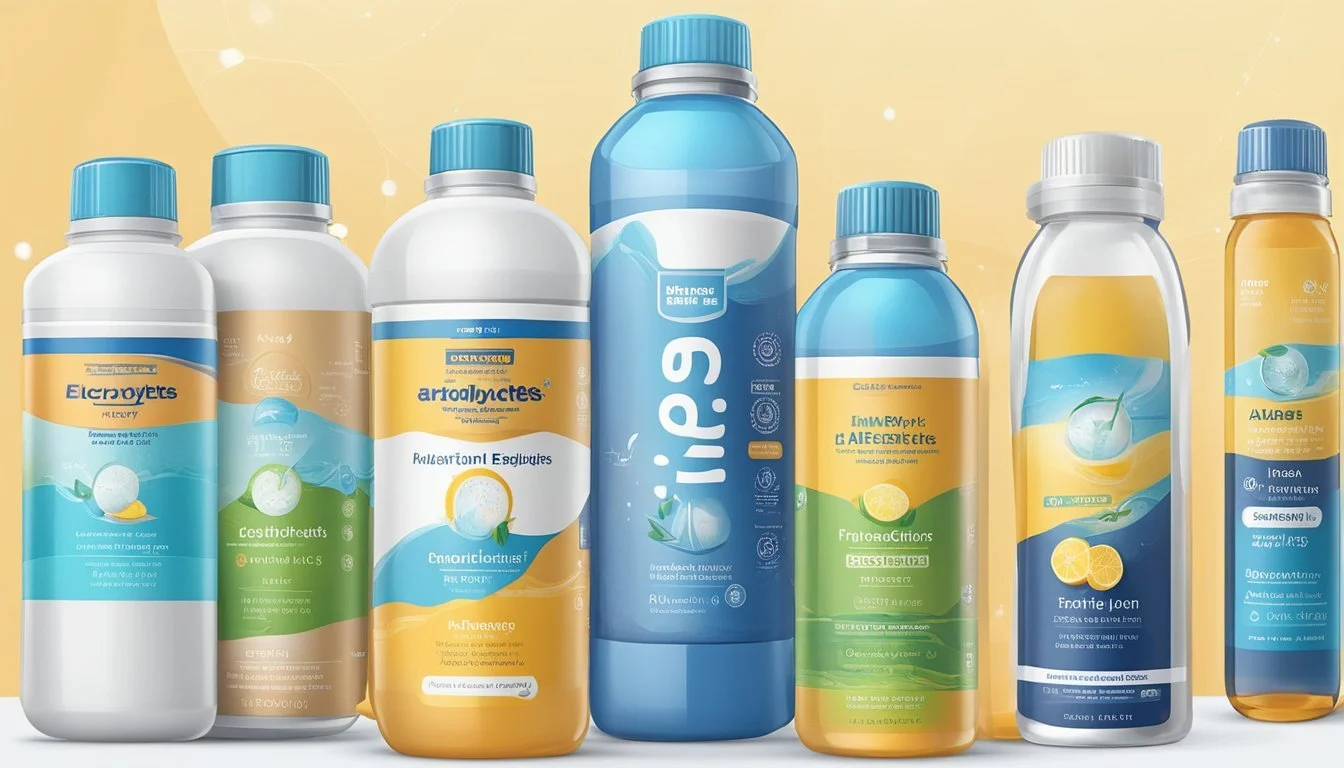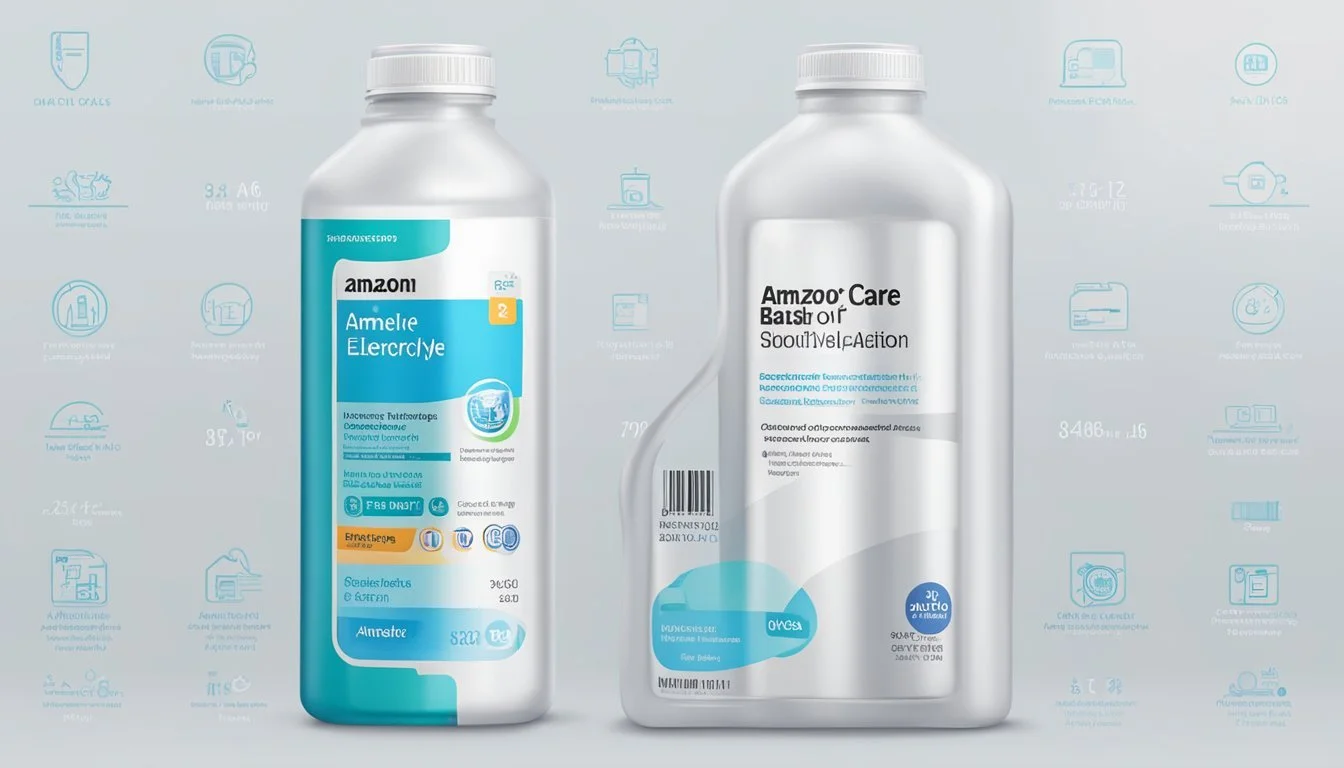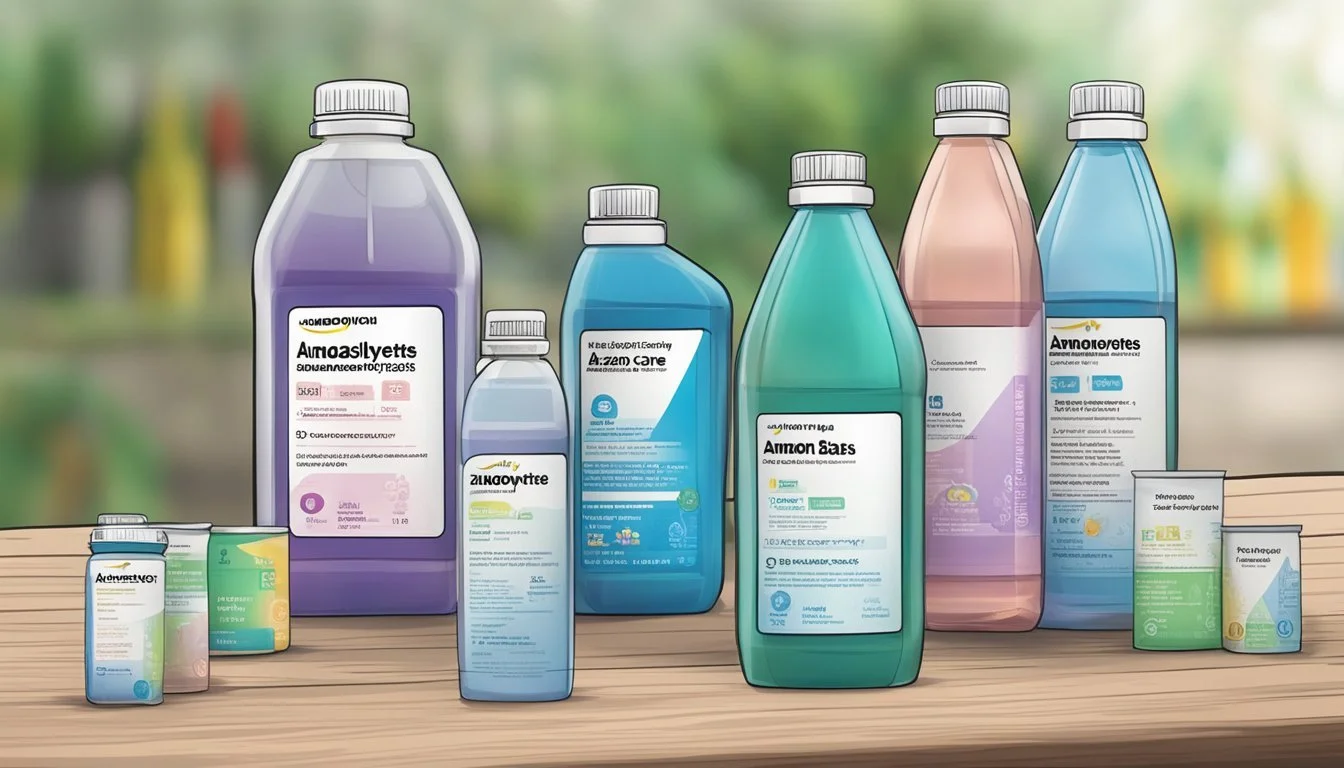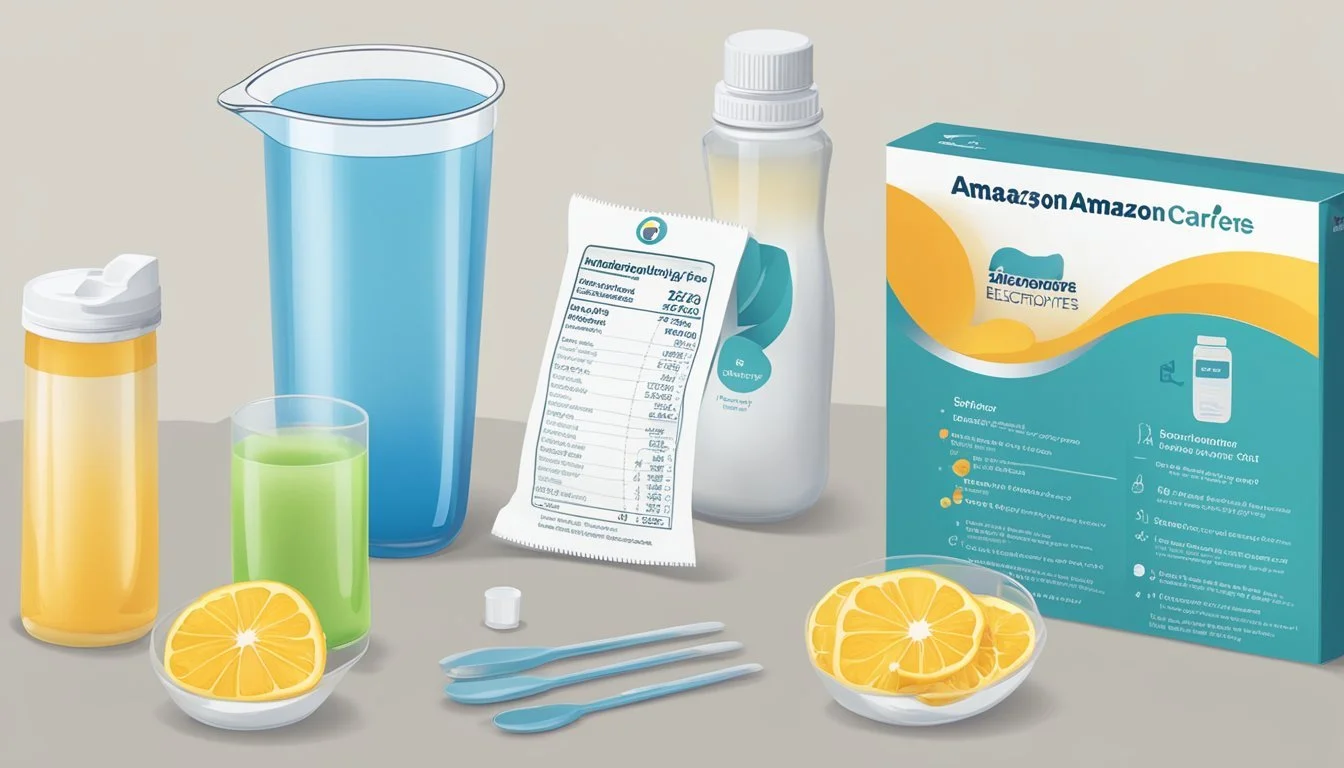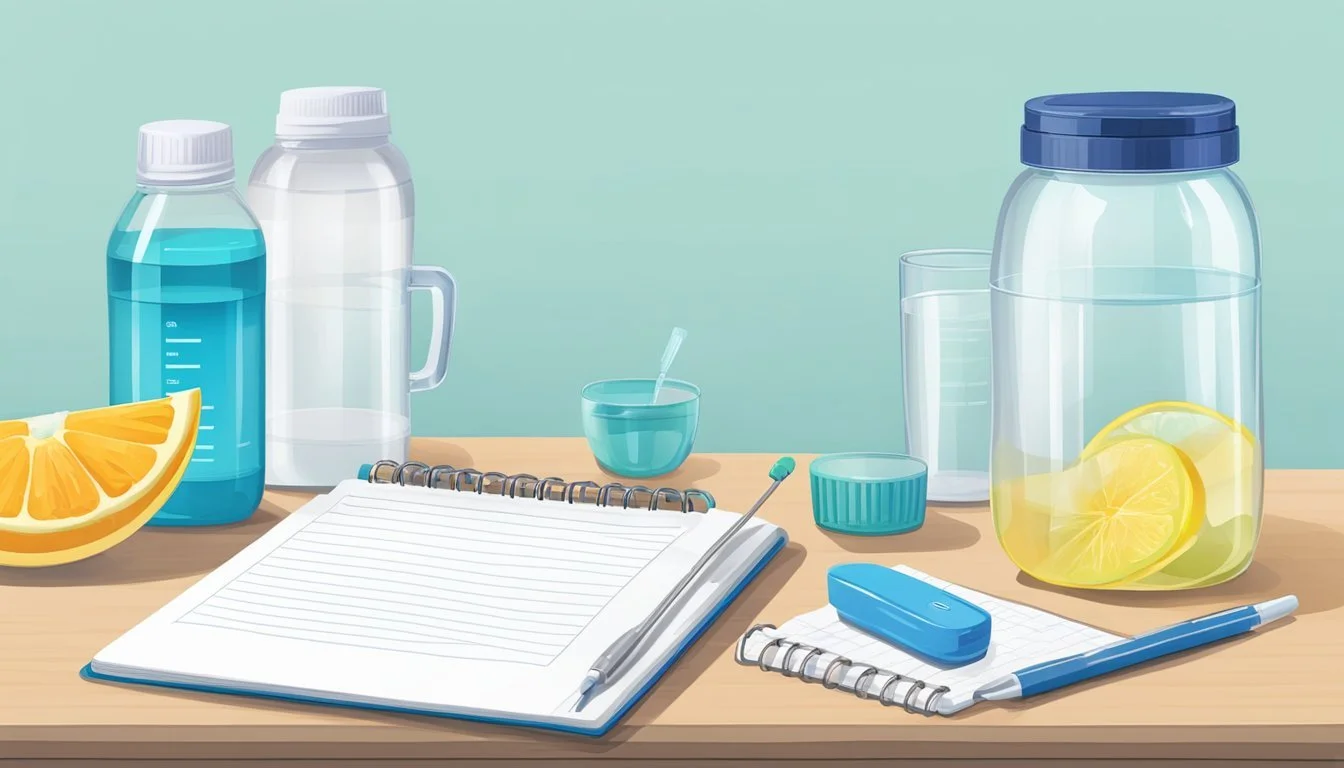How Many Servings of Amazon Basic Care Electrolytes is Too Much
Expert Guidelines
Maintaining proper hydration is crucial for overall health, and Amazon Basic Care Electrolytes can be a convenient solution. Electrolyte powders are often used to restore balance in the body, especially after vigorous activities, illness, or exposure to heat. Each packet is designed to help both adults and kids prevent mild to moderate dehydration.
The recommended serving for Amazon Basic Care Electrolyte Powder mix is generally 2-4 servings (32 to 64 fl oz) per day. Consuming more than 2 liters (64 fl oz) of electrolyte solution daily is not advised unless guided by a healthcare professional. This guideline helps ensure that users do not overwhelm their system with too many electrolytes, which can lead to issues like confusion and irritability.
Excessive consumption of any electrolyte can disrupt the body's balance. It's vital to monitor intake and consult a doctor if there are concerns about prolonged symptoms of dehydration such as vomiting, fever, or diarrhea. By adhering to these guidelines, consumers can use Amazon Basic Care Electrolytes effectively to maintain their hydration needs.
Understanding Electrolytes
Electrolytes are minerals that dissolve in the body's fluids. They play a crucial role in various bodily functions.
Sodium is essential for maintaining fluid balance and muscle contractions. It is particularly important for athletes who sweat a lot.
Potassium helps regulate heartbeat and muscle function. It is also vital for nerve function.
Magnesium is involved in over 300 enzyme reactions, including protein synthesis and muscle and nerve function.
Chloride, often paired with sodium, helps maintain fluid balance and is critical in the stomach for producing hydrochloric acid.
Calcium is crucial for bone health, muscle function, and nerve transmission.
Phosphate plays a significant role in energy production and bone health.
A proper balance of these electrolytes is vital for maintaining health. Imbalance can lead to problems such as dehydration, heart rhythm issues, fatigue, and nausea.
Common Sources of Electrolytes:
Foods such as bananas, nuts, spinach, and dairy products.
Beverages like sports drinks and electrolyte powders.
Maintaining the right levels of these minerals involves not just supplementing through drinks but also consuming a balanced diet.
Role of Electrolytes in the Body
Electrolytes are critical minerals that help sustain various bodily functions. These include sodium, potassium, calcium, magnesium, bicarbonate, chloride, and phosphorus.
Muscle Function: Electrolytes like calcium play a pivotal role in muscle contraction. Without balanced levels, muscles can become weak or overly tense.
Nerve Function: Sodium and potassium are essential for nerve impulses. They help transmit signals between nerves, which is crucial for actions ranging from muscle movement to reflexes.
Hydration: Electrolytes help regulate water balance in cells. Proper hydration is necessary for maintaining cell function and overall fluid balance in the body.
Blood Pressure: Sodium and potassium influence blood pressure levels. While excess sodium can increase blood pressure, adequate potassium can help keep it in check.
Heart Rhythm: Electrolytes maintain a natural heart rhythm. For instance, potassium ensures the heart muscle contracts and relaxes properly, thus stabilizing the heartbeat.
Fluid Balance: These minerals balance the fluids inside and outside of cells. They help the kidneys filter waste and maintain proper water levels, which is vital for normal bodily function.
Electrolyte Drinks and Hydration
Electrolyte drinks play a crucial role in maintaining hydration, especially during and after intense physical activity. When people sweat, they lose essential electrolytes like sodium, potassium, and magnesium. These minerals help maintain fluid balance, muscle function, and nerve activity.
Sports drinks like Amazon Basic Care Electrolyte Solution are formulated to quickly replenish lost electrolytes. These beverages often contain a balanced mix of sodium, potassium, and other vital minerals critical for preventing dehydration.
Hydration isn't just about drinking water. While water is essential, it lacks electrolytes. Using drinks designed for hydration, especially after heavy sweating, aids in faster recovery and better performance.
For active individuals, incorporating these electrolyte-enhanced drinks can significantly benefit overall health. They help to rehydrate more efficiently compared to plain water.
In addition to sports drinks, there are also powdered electrolyte mixes and drops available that can be added to water. These alternatives offer a convenient way to maintain electrolyte balance without consuming high amounts of sugary sports drinks.
Amazon Basic Care Electrolyte Powder Packets and LyteShow Electrolyte Drops are examples of these products, providing a flexible option for hydration.
By understanding the importance of electrolyte drinks and how they contribute to effective hydration, individuals can make informed choices about their hydration strategies. This approach ensures that both athletes and everyday individuals maintain optimal levels of hydration and electrolyte balance.
Recommended Intake of Electrolytes
To maintain proper hydration, the intake of electrolytes such as sodium, potassium, and magnesium is crucial. The exact amount varies depending on individual needs and conditions.
Sodium Intake: The recommended daily intake of sodium for most adults is about 1,500 to 2,300 milligrams according to several health guidelines. Excessive sodium can lead to high blood pressure and other health issues.
Electrolyte Packet Servings: Amazon Basic Care Electrolyte Powder Packets are designed to restore fluids and electrolytes quickly. Each packet typically mixes with 16 fl oz of water. Consult the product packaging for specific serving sizes and contents.
Registered Dietitian Suggestions: An RD (Registered Dietitian) can provide personalized recommendations based on health conditions, activity levels, and climate. Consulting an expert helps tailor electrolyte intake to individual needs.
General Guidelines: For general purposes, it's recommended to follow the usage instructions provided on the electrolyte packet. Start with one serving after exertion or fluid loss and adjust based on how your body responds.
It is essential to avoid excessive intake to prevent complications like electrolyte imbalance or high blood pressure. Always pay attention to your body's signals and consult health professionals as needed.
Symptoms of Electrolyte Imbalance
An electrolyte imbalance can cause a wide range of symptoms. These symptoms vary depending on which electrolyte is out of balance and the extent of the imbalance.
Dehydration often accompanies an electrolyte imbalance. It can occur due to excessive sweating, vomiting, or diarrhea.
Common symptoms include:
Weakness: Feeling unusually tired or fatigued.
Muscle cramps: Painful, involuntary contractions of muscles.
Confusion: Difficulty thinking clearly or feeling disoriented.
Irregular heartbeat: Noticeable changes in heart rhythm.
Other possible symptoms:
Headaches: Persistent or severe.
Nausea and vomiting: Upset stomach and frequent vomiting.
Dizziness: Feeling lightheaded or faint.
Numbness: Tingling or loss of sensation in certain areas of the body.
Mild cases may only cause minor discomfort and general malaise.
Severe cases could lead to serious health complications and require prompt medical attention.
Potential Risks of Excessive Electrolyte Intake
Excess intake of electrolytes can cause various health issues. Hyperkalemia, or elevated potassium levels, can lead to muscle weakness, irregular heartbeats, and even cardiac arrest. It is particularly dangerous for individuals with kidney disease, as their bodies cannot efficiently remove excess potassium.
Hypernatremia results from too much sodium, contributing to high blood pressure, swelling, and heart failure. Sodium imbalance affects fluid balance in the body, which is critical for nerve and muscle function.
Hypercalcemia, an excess of calcium, can cause nausea, vomiting, and kidney stones. Prolonged high calcium intake may lead to bone pain and abnormal heart rhythms.
High magnesium levels, known as hypermagnesemia, can result in breathing difficulties, muscle weakness, and lethargy. People with kidney problems are at higher risk, as their kidneys struggle to excrete excess magnesium.
Proper electrolyte balance is crucial for overall health. Imbalances impact various bodily functions including muscle contractions and cognitive function. Monitoring electrolyte intake is necessary to avoid these potential risks.
Factors Contributing to Increased Needs
Physical Activity and Exercise significantly increase the demand for electrolytes. As an individual engages in more intensive activities, their bodies lose electrolytes through sweat. This is especially true for athletes and those who regularly participate in vigorous sports.
When an individual exercises in hot conditions, loss of electrolytes can be exacerbated due to increased sweating. Heat is a crucial factor that accelerates the depletion of electrolyte levels, making proper replenishment essential.
Dehydration often accompanies inadequate intake of fluids or excessive fluid loss, leading to a higher requirement for electrolytes. Under these conditions, maintaining the balance of electrolytes becomes crucial to supporting metabolic processes.
Illness, particularly conditions that cause vomiting, diarrhea, or fever, can result in substantial electrolyte loss. During these times, the body’s usual electrolyte balance is disrupted, and additional supplementation may be necessary.
To ensure proper functionality, the body needs to compensate for the expended electrolytes during periods of high physical activity, heat exposure, or illness. Understanding these contributing factors ensures that individuals can appropriately manage their electrolyte intake.
Monitoring and Managing Intake
Monitoring and managing your intake of Amazon Basic Care Electrolytes is essential. Individuals should consider various factors such as hydration status, activity level, and personal health conditions.
Start by paying close attention to hydration status. An easy method is to observe urine color. Light yellow indicates good hydration, while dark yellow or amber suggests dehydration.
Including regular blood tests and an electrolyte panel can help track sodium, potassium, and other essential electrolytes. This is especially important for those with medical conditions affecting electrolyte balance.
Consulting a healthcare provider or a registered dietitian is advisable. They can provide personalized recommendations based on your unique needs and activity levels.
For those active in fitness, increasing electrolyte intake might be necessary. Athletes who sweat profusely lose significant amounts of electrolytes and may require more.
A general guideline is to start with 2-4 servings per day, equating to 32-64 fl oz. Adjust according to personal hydration needs and activity. Always consult a healthcare provider if unsure or if symptoms persist.
Water intake must not be neglected. Electrolyte solutions should complement water consumption, not replace it. Balanced fluid intake supports optimal hydration and prevents complications.
By regularly checking and managing electrolyte levels and hydration, individuals can maintain overall well-being effectively.
Natural Sources of Electrolytes
Certain foods provide a rich supply of electrolytes necessary for the body's functions.
Fruits: Bananas, oranges, and avocados are excellent sources of potassium. Cantaloupe and watermelon also provide significant amounts of this essential mineral.
Vegetables: Spinach, broccoli, and kale contain high levels of potassium, magnesium, and calcium. These leafy greens are also rich in antioxidants.
Balanced Diet: Incorporating a variety of electrolyte-rich foods ensures that individuals receive the necessary nutrients and minerals their bodies need to function properly.
Nutrients: In addition to potassium, foods such as almonds and seeds offer magnesium, while yogurt and cheese are good sources of calcium.
Water: Hydration is vital. Drinking water helps maintain electrolyte balance, especially after physical activities that cause sweating.
Tea: Herbal teas, such as chamomile and hibiscus, can contribute to overall hydration and provide trace amounts of essential minerals.
Maintaining a diet that includes these natural sources ensures a steady supply of electrolytes.
When to Seek Professional Advice
If consuming Amazon Basic Care Electrolytes leads to symptoms such as confusion, irritability, or other unusual reactions, it's advisable to consult a healthcare provider.
Persistent health conditions like vomiting, fever, or diarrhea that extend beyond 24 hours also warrant professional advice.
Should an individual's electrolyte consumption surpass 2 liters (64 fl oz) per day, consulting a registered dietitian or healthcare provider is crucial.
Certain existing health conditions, such as kidney stones, may require careful monitoring of electrolyte intake.
An expert can offer tailored guidance and treatment options, ensuring safe and effective use of electrolyte supplements.



